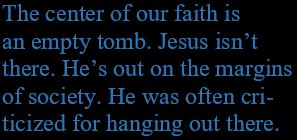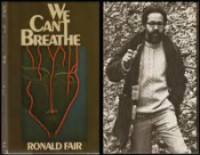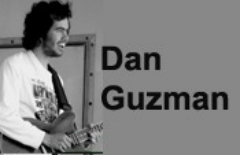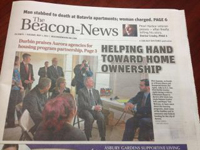Vana Liya’s shows remain flowing and gently strong, but they’re getting more fun, too, as witnessed in the VIDEO below of her October 2024 show at The Subterranean in Chicago, her second in the city this year. The video captures 8-minutes of the fun, beginning with her signature song “Gold.” Everything moves along, probably as it has concert after concert, but when it comes time for Daniel and Derek (aka Man of the Forest) to do their neat solos in harmony, Daniel suddenly flips the guitar over his head and plays it upside down as it rests on his shoulders.
The first time I experienced this live was when I was in high school and directed the year’s talent show. A band—Sato and the Mellotones, I think—were auditioning and were really good. They were going to make it. But halfway through their song the guitarist flips his guitar over his head, at which my assistant director, Phil Brooks, jumped up and shouted, “No! No! That cheapens your act!” I didn’t agree, and neither did Sato, who said, stunned, almost pleading, “But he’s got to do that because next he picks it with his teeth.”
Well, Daniel stopped short of that, thankfully, but it was good to see him having fun on stage. I think he’s a great guitarist, and I still point people to this YouTube Video of him playing “Way Down Low” at the Stork Club in Oakland, California, as a prime example of  someone building a beautiful, improvised solo. It’s brilliant. And he’s played brilliantly for a long time, but early on he seemed shy, almost stepping out of the spotlight sometimes when he played. Being in Vana Liya’s band has made him more of a showman, perhaps a secondary concern in music, but still a crucially important part of making live music spark.
someone building a beautiful, improvised solo. It’s brilliant. And he’s played brilliantly for a long time, but early on he seemed shy, almost stepping out of the spotlight sometimes when he played. Being in Vana Liya’s band has made him more of a showman, perhaps a secondary concern in music, but still a crucially important part of making live music spark.
Vana Liya and the band were second on the bill to KBong and Johnny Cosmic, and things really start sparking when KBong himself comes out to finish off Vana’s “Feeling Good.” “It all started with him.” She says something like that because it was KBong who took her on her first tour many years ago, and why, when she’s doing “Feeling Good” on the acoustic Sugar Shack Sessions, she says, “Shout out to my boy KBong.” So behind the good fun there was a long history of togetherness, something that adds to the fun a deep joy.
♦ Go HERE for more of Dan Guzman’s music, as well as music from others in our family.











Elitism and Elections
George Packer’s “The End of Democratic Delusions” explores the Democrats’ misunderstanding of Identity Politics. Just because you’re a person of color doesn’t mean you’ll always vote Democratic, etc. Sophie Gilbert’s “The Gender War Is Here” focuses on—well, gender—though it struck me as somewhat schizophrenic, saying, on the one hand that this is going to happen to women, but that women don’t have to let these things happen to them. It ends: “He won’t ruin women, but he will absolutely destroy a generation of men who take his vile messaging to heart.” David Frum explores the new administration’s foreign policy, especially the threatened tariffs. And Helen Lewis explores the Joe Rogan phenomenon, a testament to the power of new media and the continuing power of maleness. I’d call it “patriarchy,” but part of my point here is to steer away, for a moment at least, from what many perceive to be “elitist language.”
These pieces all focused by and large on deep, underlying issues. But in one of his many post-election interviews, Trump said, “I won this election because of one word: ‘groceries.’” Not one of the Atlantic analyses mentioned groceries. When, during the campaign, I got texts from James Carville asking for money to bolster the Harris-Walz campaign, I couldn’t help but think: Are you kidding? You invented the phrase, “It’s the economy, stupid!” It’s groceries.
There’s also a fifth essay in the January 2025 issue appearing about one-third of the way through. It has nothing directly to do with the election but might have been included by design anyway. It’s Caitlin Flanagan’s lovely tribute to her parents and to the great Nobel Laureate Irish poet Seamus Heaney. Its title comes from one of Heaney’s most famous lines: “Walk on air against your better judgment,” which is an invitation to hope even though hope itself seems to go against your better judgment. She says Seamus Heaney “didn’t believe in a force as mere as optimism. He believed in hope, “something far greater and more powerful.” She also quotes lines from his The Cure at Troy, which is a good way to end this commentary on the election as so many people on both sides of our stark divisions look out on what they believe is a terrible, almost apocalyptic, future.
So hope for a great sea-change
On this side of revenge.
Believe that a further shore
Is reachable from here.
Believe in miracles
And cures and healing wells.